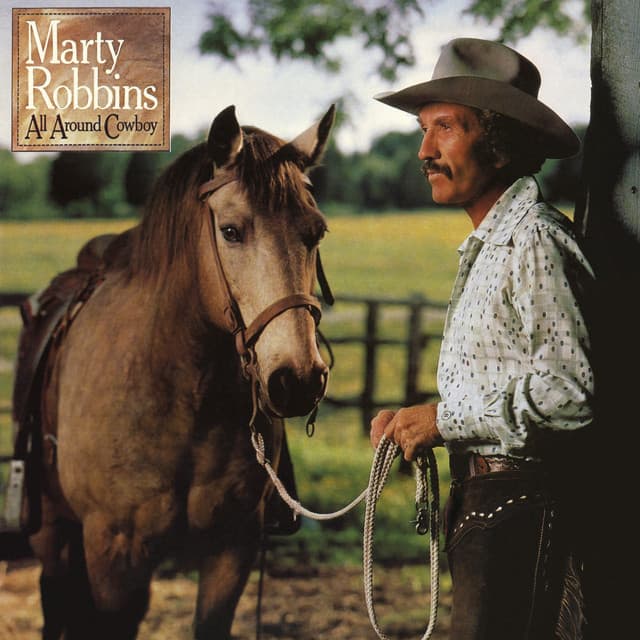
Echoes of the Range: A Timeless Tale of Yearning and the Cowboy’s Solitude
For those of us who grew up on the romance of the American West, the voice of Marty Robbins is not just music; it’s the very dust and wind of the trail, the gleam of a six-gun under a desert moon. Yet, not all of his cowboy epics are about gun smoke and high adventure. In the late stages of his luminous career, Marty Robbins gifted us with the exquisitely melancholic track, “Restless Cattle”, a song that settles into the quiet, reflective side of the Western mythos.
Released in 1979 on the album All Around Cowboy, “Restless Cattle” did not follow its album mates, “All Around Cowboy” (which reached No. 16 on the Billboard Hot Country Singles chart) or “Buenos Dias, Argentina” (which peaked at No. 25), into the upper echelons of the charts as a breakout single. Instead, it remains one of those deeper cuts, a cherished jewel for the true devotee of Robbins’s lyrical storytelling, finding its success in the hearts of listeners rather than on a sales tally. Produced by the legendary Billy Sherrill, the album saw Robbins return to the classic country-western milieu he had mastered decades before with his monumental Gunfighter Ballads and Trail Songs. “Restless Cattle”, though not a charting single itself, contributes an essential, introspective mood to this collection, cementing the record’s warm, nostalgic tone.
The song’s simplicity is its profound strength. Written and performed by Marty Robbins himself, it doesn’t spin a grand narrative of a gunfight in El Paso or the desperate chase after Texas Red. Instead, it channels a quieter, more universal ache—the deep loneliness of a life constantly moving. The story behind the song is essentially the story in the song: the contemplation of a solitary man on horseback, watching his herd beneath an indifferent sky. The cowboy protagonist speaks directly to his cattle, acknowledging their “restlessness” as a reflection of his own soul. He sings of a beautiful woman he was foolish enough to leave behind—a love now as distant as the lowlands are from the high mountain trails he must ride.
The true meaning of “Restless Cattle” lies in this powerful analogy. The “restless cattle” are not merely livestock; they are a metaphor for the cowboy’s own unquiet spirit, his failure to settle down, and his deep regret. He sees their wandering nature, their inability to find peace in any pasture, and recognizes his own condition. He is bound to the endless journey—a professional nomad—and that life cost him the comfort and connection of a permanent love. The haunting quality of the track is built on this realization: that while he can command his herd, he cannot command his own heart to stop roaming, nor can he reverse the past. The simple, almost spoken-word cadence and the gentle, rolling melody evoke the endless, unhurried expanse of the plains, making his wistful admission of loss all the more poignant. It’s a moment of raw, honest vulnerability from a man who usually faced death with a stern resolve in his songs.
For an older generation, this track resonates with a deep and specific nostalgia. It is a song about looking back, about the paths not taken, and the sacrifices made in the pursuit of a particular, demanding life. It’s the sound of a late-night campfire, a solitary sigh carried on the desert wind—a beautiful, unhurried, and genuinely felt piece of storytelling that only a master like Marty Robbins could deliver. It reminds us that even the toughest figures carry a profound weight of memory, a beautiful phantom of what might have been. It is a timeless lament for the wandering soul, whether that soul is traversing the Arizona desert or simply reflecting on a long life’s journey from the quiet of an armchair.